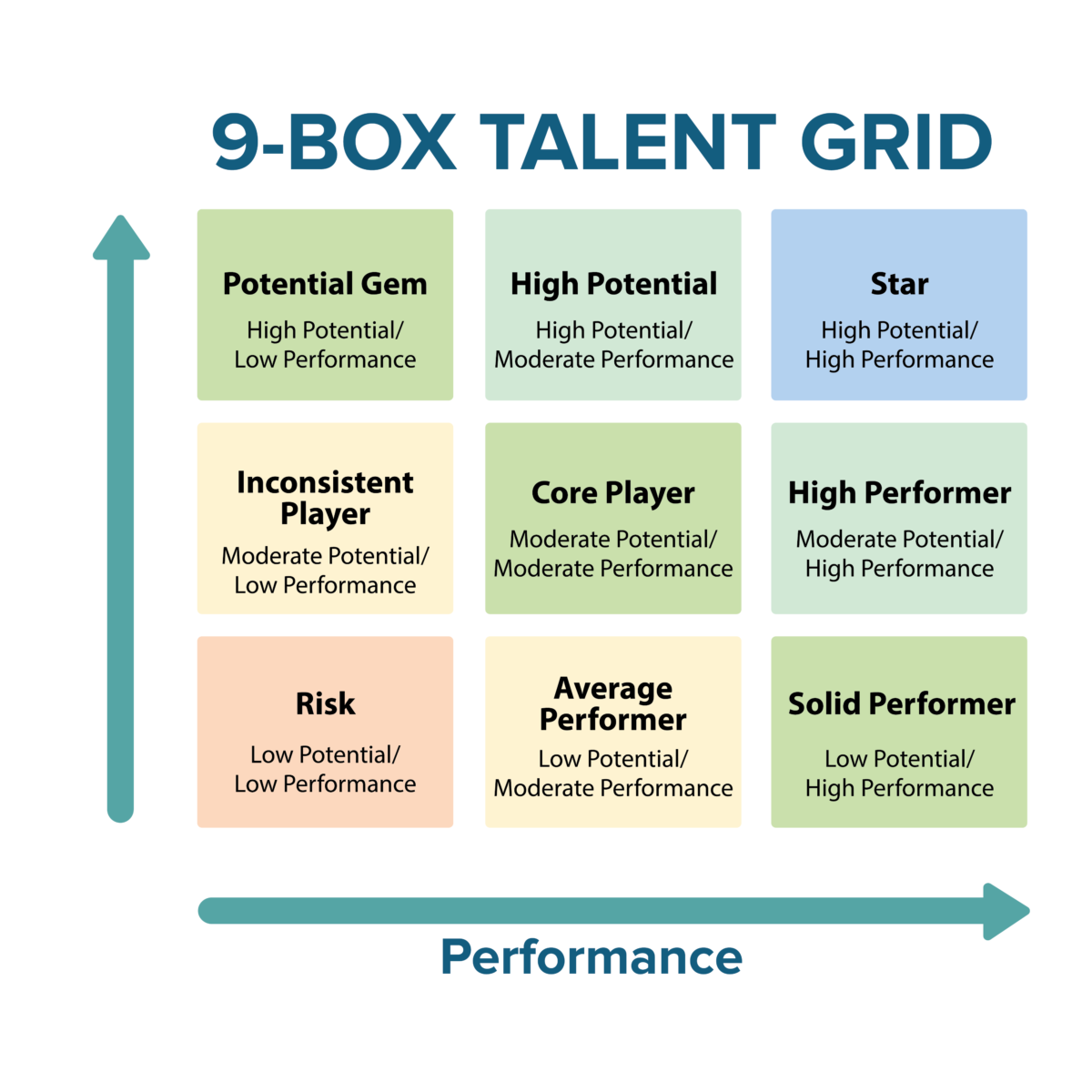Working out who the talented people are sounds easy, but it turns out to be quite complex for many leaders. Loyalty and liking get in the way of tough decisions, and potentially get confused with performance. We also ignore issues when they are small, making them really difficult to deal with once they become a problem.
In this podcast, Paul and Ricky explore a model used by a lot of organisations to help them think about talent, and the different ways that people need to be managed to get the best out of them. The model, affectionately known as the nine-box talent grid, explores two distinct factors: current performance and future potential. Performance is all about what they are doing today, whereas Potential considers what the organisation needs from them tomorrow. How can we use this model to get the right people in the right place, and manage our people effectively?







